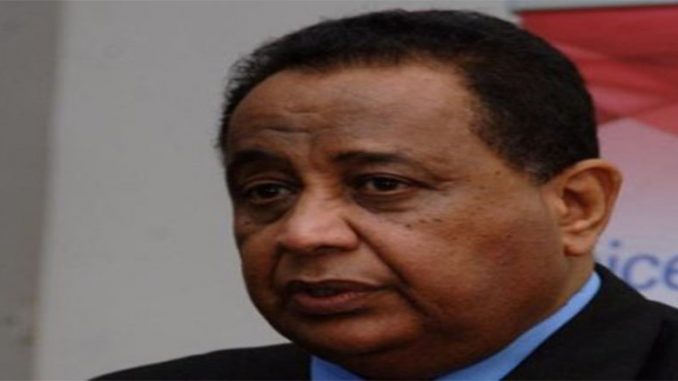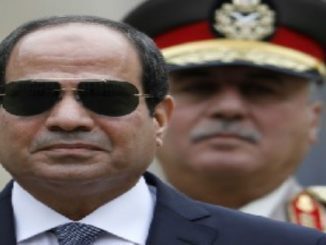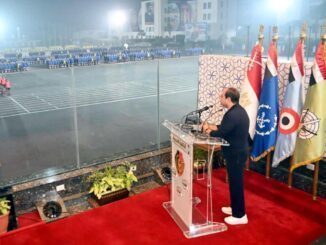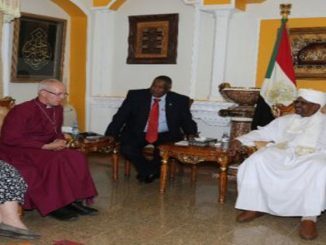
Sudan Foreign Minister Ibrahim Ghandour has asked Cairo to explain the position of an Egyptian diplomat at the United Nations calling to maintain UN arms embargo on Darfur and other sanctions provided in UN resolution 1591 (2005).
Ghandour was referring to an informal consultations meeting held on 7 April for the Security Council Committee established pursuant to resolution 1591 (2005) concerning the Sudan. The meeting discussed a quarterly update and a work plan presented by its Panel of Experts.
In a briefing to the press in Khartoum about the visit of President Omer al-Bashir to Kuwait and Bahrain, Ghandour said the deputy head of Egypt’s Permanent Mission to the United Nations who participated in this meeting support the panel and called to maintain the sanctions imposed on Sudan in accordance with the resolution 1591 (2005).
“During the discussion (between Committee members and the Panel) the deputy permanent representative called to maintain sanctions imposed on Sudan in line with the resolution 1591 (2005),” said Ghandour.
“His position was abnormal and we have requested our Egyptian brothers to explain this matter which is in total contradiction with Egypt’s positions at the UN Security Council during the past years,” he further stressed.
UN Security Council Resolution 1591 imposes travel bans and asset freezes on parties involved in the conflict in the western Darfur region. Also, it imposes an arms embargo on Darfur and called on states that supply Sudan with military equipment to take measures to prevent its use in Darfur.
At the time, Khartoum had been blamed for not observing N’Djamena Ceasefire Agreement and the Abuja Protocols.
“I hope that this position does not reflect the minor differences between the two countries,” said the Sudanese foreign minister said alluding to the dispute on Halayeb triangle.
“Otherwise, it would be a breach of the African and the Arab position and even of the traditional Egyptian position supporting Sudan,” he added.
According to a short report released about the consultations meeting of 7 April, the experts briefed the Security Council Committee members about their mission to Sudan in February and their intention to travel to Sudan in the coming weeks. Also, they highlighted the areas where they plan to conduct investigations and monitoring this time.
EGYPT DENIES
The Egyptian foreign ministry spokesperson Ahmed Abu Zeid confirmed that they had been approached by the Sudanese foreign ministry over this issue but he vigorously dismissed his government’s support for UN sanctions on Sudan.
“The Egyptian Embassy in Khartoum explained to the Sudanese brothers in no uncertain terms that Egypt, in line with its permanent approach, adopts supportive positions for the benefit of the Sudanese people, whether during the deliberations of the Security Council or its relevant sanctions committees,” said Abu Zeid in a statement released on the Facebook page of the Egyptian foreign ministry.
He further said the Darfur sanctions committee didn’t discuss the extension of sanction because a decision in this regard was taken already on 8 February.
The row over the sanctions committee reflects again the strained relationship between the two countries.
During the past period, Sudan accused the government-controlled media in Egypt of attacking the government in Khartoum and Sudanese people.
But this incident is the first time that a Sudanese official makes public comments accusing Egypt of taking a hostile position against his country.
The Egyptian Foreign Minister Sameh Shoukry is expected in Khartoum on Thursday 20 April for talks aiming to clear the growing misunderstandings between the two countries.



